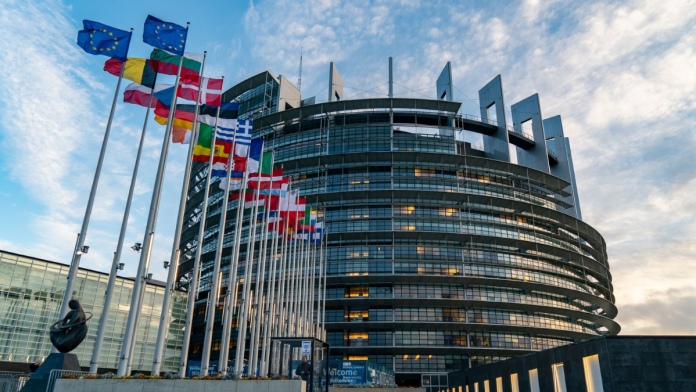The European Parliament has taken an unprecedented and unanimous step against Tanzania following the country’s October 2025 elections. In a decisive vote of 539–0, with 27 abstentions, Members of the European Parliament approved a resolution to freeze funding to Tanzania and prepare possible sanctions against individuals believed to be behind serious human rights violations.
Lawmakers said they were deeply alarmed by reports of killings, enforced disappearances, and attacks on opposition supporters after the election. They pointed to accounts of civilians being killed and activists being abducted in the post-election period. The resolution also highlighted the politically motivated detention of opposition leader Tundu Lissu, who was blocked from participating in the election and now faces a capital charge. Members of the Parliament demanded his immediate and unconditional release and urged the country to abolish the death penalty.
During the debate, David McAllister, Chair of the Foreign Affairs Committee, described the election as “anything but democratic,” saying that intimidation, violence, and the detention of opposition figures showed a clear slide toward authoritarian rule. His comments reflected the strong concerns raised across the Parliament about Tanzania’s political climate after the polls.
EU Freezes 2025 Funding and Demands Independent Investigations
Following the adoption of the resolution, the European Union confirmed that it had frozen Tanzania’s entire Annual Action Plan for 2025. The plan includes a €156 million allocation under the EU’s 2025–2027 NDICI Global Europe program. The freeze means that cooperation cannot continue as long as the human rights crisis remains unaddressed.
The European Commission stated that the severity of the situation made it impossible to move forward with normal engagement. Officials said that Tanzania must allow credible investigations into all reports of killings, torture, enforced disappearances, and election-related violence before any cooperation can resume.
Earlier, Maria Luis Albuquerque, the European Commissioner for Financial Stability, Financial Services and Capital Markets Union, briefed Members of the Parliament about the situation. She said the EU had received multiple communications expressing concern over the killings, disappearances, and growing political restrictions. She added that the Implementation Decision for Tanzania’s Annual Action Plan 2025 had been put on hold due to the gravity of the allegations. She also raised concern about the continued detention of Tundu Lissu and the shrinking space for political opposition.
The Parliament also called for independent investigations into all election-related abuses. Lawmakers want an African-led inquiry to look into the reported killings, enforced disappearances, torture, and other violations. They also urged Tanzanian authorities to release all political prisoners without conditions.
Latvia-linked firms continue operations with Russian tankers amid EU sanctions
Calls for Sanctions and Redirection of EU Support
Alongside the funding freeze, Members of the European Parliament called for consideration of sanctions against individuals implicated in the violations. These sanctions would target those believed to be responsible for the post-election abuses.
The Parliament also urged the EU to redirect its support away from state authorities and toward civil society groups, human rights defenders, journalists, and communities affected by the violence. Lawmakers said this shift would ensure that assistance reaches groups working to protect rights and freedoms during the current crisis.
In Tanzania, Thabit Kombo, who was appointed by President Samia Suluhu as the new foreign affairs minister, responded by saying that the country would not face any crisis as a result of the EU’s decision. He stated that Tanzania would continue to function normally despite the frozen funds.
The resolution marks one of the strongest positions taken by the European Parliament regarding Tanzania’s political and human rights situation following the 2025 elections.


